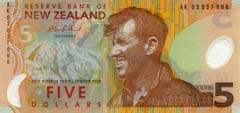Cook Islands These easy-on-the-eyes islands, fifteen in all, were named after Captain Cook, the famed British explorer, who sailed through them in 1773.
Long a British protectorate, in 1900 the administrative control of the islands was transferred to New Zealand. Today, even though self-governing, the Cook Islands are in a somewhat dependent association with New Zealand regarding defense and other external issues.
The local subsistence economy is subsidized by limited exports of agricultural products, and by foreign aid, mostly from New Zealand. Tourism is on a steady growth rate, however, the island's isolated location limits that growth.
For additional info about the Cook Islands, and their most interesting history, go here.
Long a British protectorate, in 1900 the administrative control of the islands was transferred to New Zealand. Today, even though self-governing, the Cook Islands are in a somewhat dependent association with New Zealand regarding defense and other external issues.
The local subsistence economy is subsidized by limited exports of agricultural products, and by foreign aid, mostly from New Zealand. Tourism is on a steady growth rate, however, the island's isolated location limits that growth.
For additional info about the Cook Islands, and their most interesting history, go here.
Fast Facts
- Name: Cook Islands, a free association territory of New Zealand, claimed in 1901
- Capital City: Avarua (13,595 pop.)
- Population: 10,134 (2014 est.)
- World Populations (all countries)
- Currency: New Zealand Dollar (NZD or NZ$)
(conversion rates)
5 New Zealand Dollars - Ethnicity: Cook Island Maori (Polynesian) 81.3%, part Cook Island Maori 6.7%, other 11.9%
- Language: English (official) 86.4%, Cook Islands Maori (Rarotongan) (official) 76.2%, other 8.3%
- Largest Cities: (by population) Avarua, Amuri, Omoka, Roto, Tauhunu
- National Day: First Monday in August
- Religion: Protestant 62.8% (Cook Islands Christian Church 49.1%, Seventh-Day Adventist 7.9%, Assemblies of God 3.7%, Apostolic Church 2.1%), Roman Catholic 17%, Mormon 4.4%, other 8%, none 5.6%, no response 2.2%
Flags

No comments:
Post a Comment